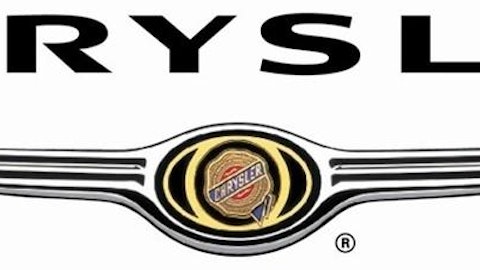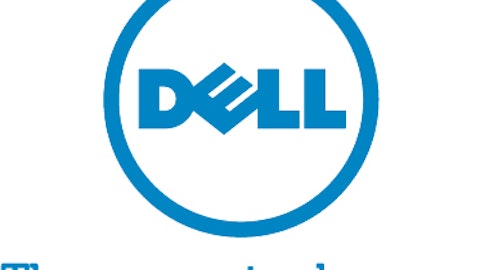Last month, the U.S. Treasury announced the launch of a trading plan to sell the rest of its stake in General Motors Company (NYSE:GM) by early 2014. This followed a decision by GM last December to buy back 200 million shares from the Treasury Department for $5.5 billion. By the end of this month, the Treasury will own just 14% of GM stock, down from a whopping 61% in 2009.
We are thus closing in on the end of the government ownership era for General Motors Company (NYSE:GM) in the United States. The “Government Motors” tag has stuck to GM like a barnacle, and the resulting blow to GM’s reputation has driven many former customers to rivals like Ford Motor Company (NYSE:F), and even foreign automakers like Hyundai and Kia.
Most Americans who opposed the auto bailouts in 2008 and 2009 have not forgiven either the government or the automakers for what they see as an intrusion by the government into the free market and the normal bankruptcy process. Recent articles about General Motors Company (NYSE:GM) here at the Fool have often inspired multiple comments from our Foolish readers to the effect that they would never consider buying a GM vehicle again because of the bailouts.
If this vocal group represents a substantial portion of U.S. consumers, the implications could obviously be massive for GM. How big of a threat does this “Government Motors” stigma pose to GM’s long-term success? We won’t know for sure until this story plays out over the coming years (and decades), but today it looks like the Government Motors scandal could cause General Motors Company (NYSE:GM) to lose its long-held No. 1 spot in the U.S. market. Ford therefore seems like a more promising investment opportunity.
“Government Motors” still weighing GM down
While Ford and GM have both been launching many new models in the U.S. recently, Ford is outperforming GM with better sales growth and better margins. GM’s “Government Motors” perception problem is probably one major cause. As of the end of May, GM’s 2013 vehicle sales were up 8.3% year over year, while Ford’s sales were up 13.0%. GM also lagged Ford in 2012, with vehicle sales growth of 3.7%, versus Ford’s 4.7% increase.
More importantly, Ford Motor Company (NYSE:F) has been delivering superior margins in North America. That’s why Ford’s North American pre-tax profit exceeded GM’s by $1.4 billion last year, even though GM still sells more vehicles. The difference in margins implies that GM resorts to price cuts and incentives to move vehicles off dealer lots more than Ford does.
It would be wrong to draw a straight line between the “Government Motors” label and General Motors Company (NYSE:GM)’s underperformance relative to Ford Motor Company (NYSE:F). Certainly Ford has been doing a lot of things right. It is releasing boldly designed vehicles like the new Fusion, which has helped Ford gain share vis-à-vis the Japanese automakers that have dominated the U.S. car market recently.

The 2013 Ford Fusion (courtesy of Ford)
However, it’s no secret that GM executives believe the company’s status as a “political punching bag” hurts sales. That is a major reason why they have been so eager for the Treasury to sell its shares. General Motors Company (NYSE:GM) has not shared any concrete data about lost sales, but the numbers are probably significant to warrant such attention.
Hitting where it hurts
Moreover, lost sales are probably hitting GM where it hurts the most — in high-margin trucks and SUVs. The auto bailouts quickly became highly politicized, with most Democrats supporting them and most Republicans opposing them. Yet a 2012 survey of auto buyers found that buyers of full-size pickups and SUVs disproportionately self-identified as Republicans.
GM is in the midst of rolling out a new line of full-size trucks and SUVs, and the success of these new models will have a tremendous impact on GM’s profitability over the next six years or so. Analysts believe that GM could earn up to $6 billion in gross profit annually from the Silverado and Sierra pickups alone. However, if the stigma of the bailout continues to haunt GM, this expected windfall will not materialize.
Moreover, pickups inspire especially high user loyalty. This could be good or bad for General Motors Company (NYSE:GM). If loyalty to GM trucks overcomes distaste for the auto bailouts among most “conflicted” buyers (i.e. Chevy and GMC owners who opposed the bailout), it will sharply mitigate the damage to GM. On the other hand, if those same individuals switch to Ford or Ram trucks, they could be lost to GM for life, making the bailout especially costly.
Lastly, truck buyers do have other good options. Ram refreshed its truck lineup last year, and Ford is planning to debut a new full-size pickup next year, which is expected to offer major fuel efficiency improvements over today’s pickups. GM can’t just cruise home in the truck and SUV markets. It needs to find a way to appease disaffected customers; simply getting the government to sell its stake (at a big loss, no less) will not get the job done.
Foolish bottom line
As long as President Obama is in office — which will be until early 2017 — the auto bailouts will remain fresh in the minds of many conservatives. Bailout stigma could therefore follow GM long after the Treasury sells the last of its GM shares next year. GM will feel the impact primarily in the high-margin full-size pickup and SUV markets, where most buyers are Republicans.
Investors should therefore watch the launch of GM’s new truck and full-size SUV platform closely. If GM can pick up market share over the next 12 months (when it will have a brand-new pickup platform and top rival Ford will have an outgoing model), it should ease concerns about any continuing “Government Motors” stigma.
On the other hand, if Ford continues to pick up market share or GM resorts to high-incentive spending to drive sales volume, investors should be worried. GM faces a formidable competitor in Ford in the truck and SUV markets. The company will have to deliver a stellar product to keep pace from a performance perspective. However, General Motors Company (NYSE:GM) doesn’t have a chance in this competition if a significant proportion of truck and SUV buyers won’t consider a Chevy or GMC for political reasons.
The article Will GM Be “Government Motors” Forever? originally appeared on Fool.com and is written by Adam Levine-Weinberg.
Fool contributor Adam Levine-Weinberg has no position in any stocks mentioned. The Motley Fool recommends Ford and General Motors. The Motley Fool owns shares of Ford.
Copyright © 1995 – 2013 The Motley Fool, LLC. All rights reserved. The Motley Fool has a disclosure policy.





